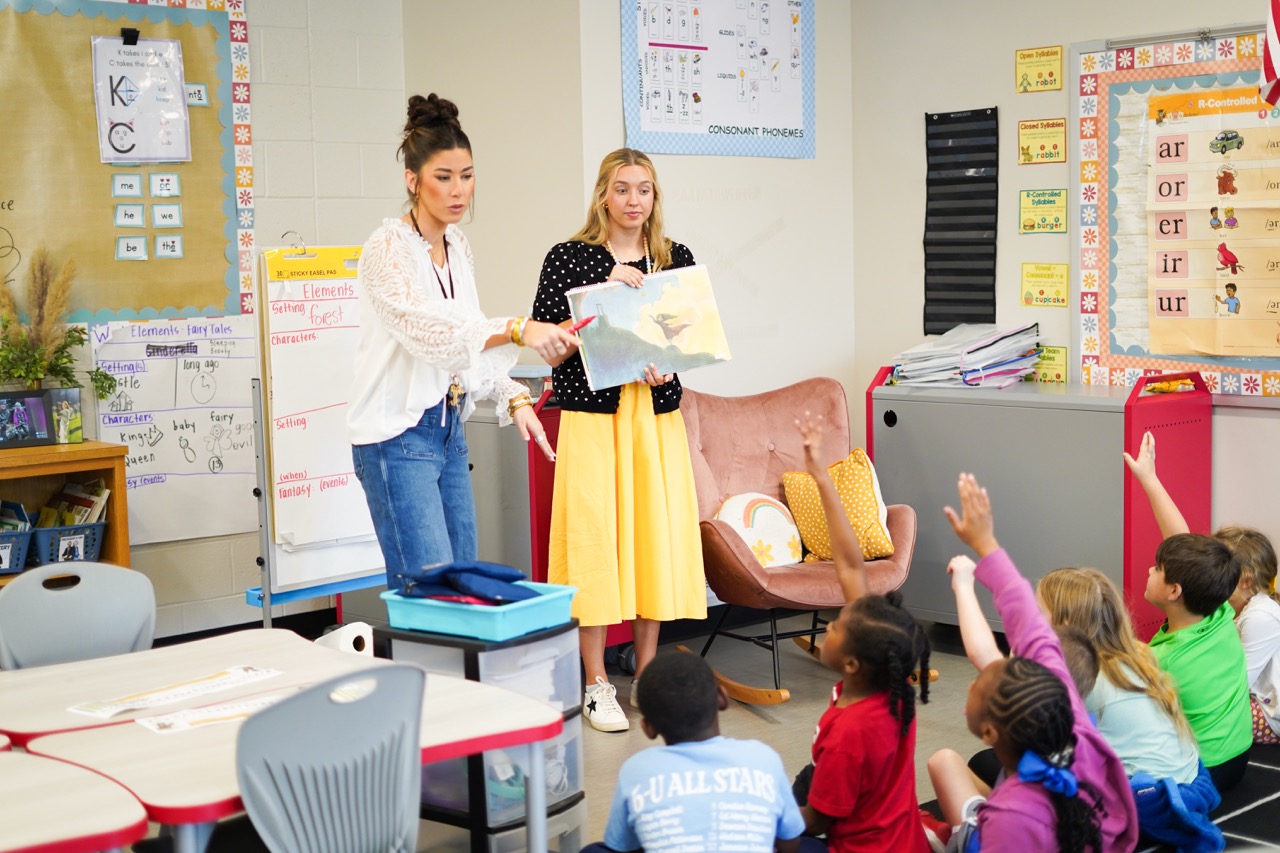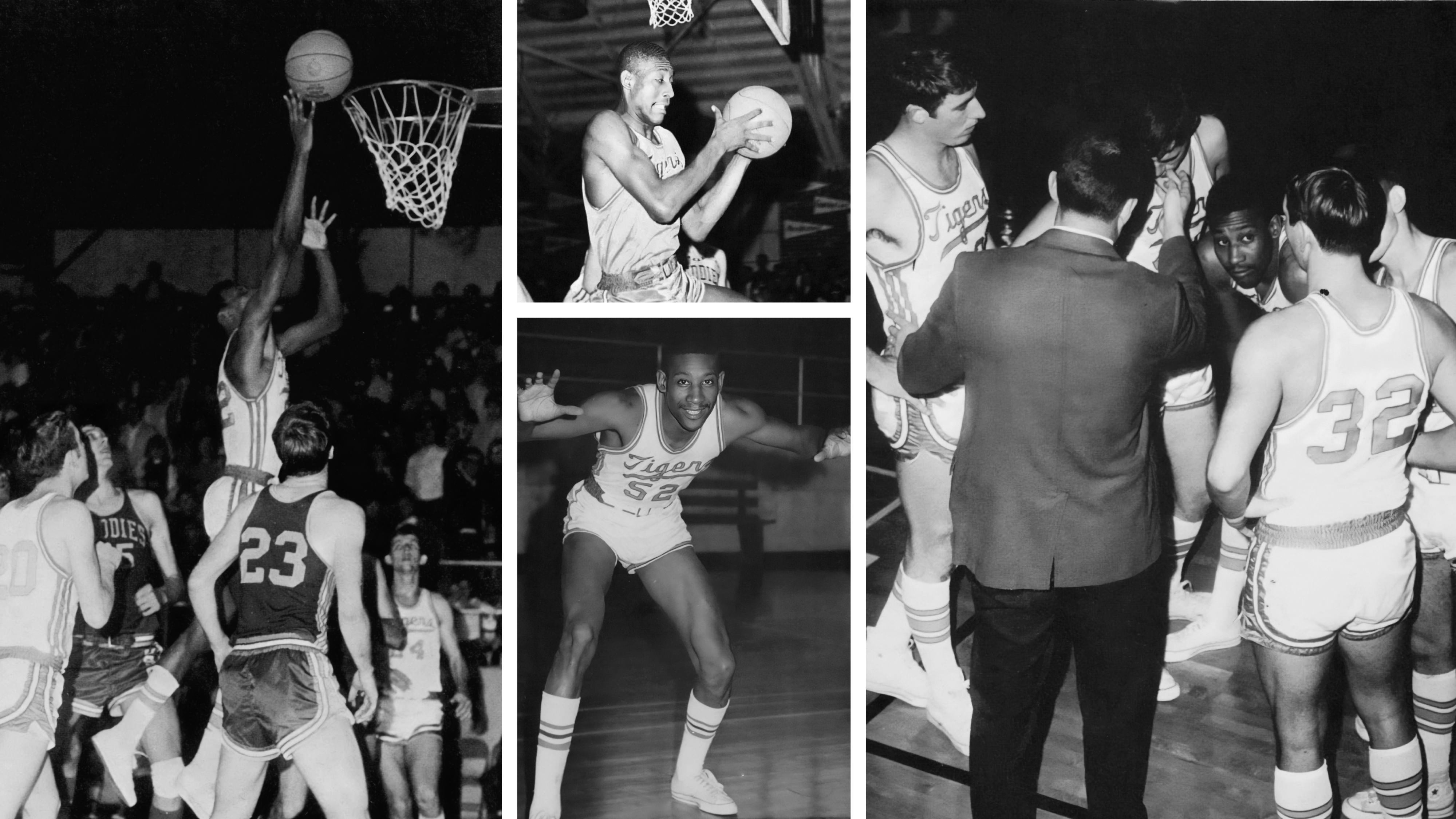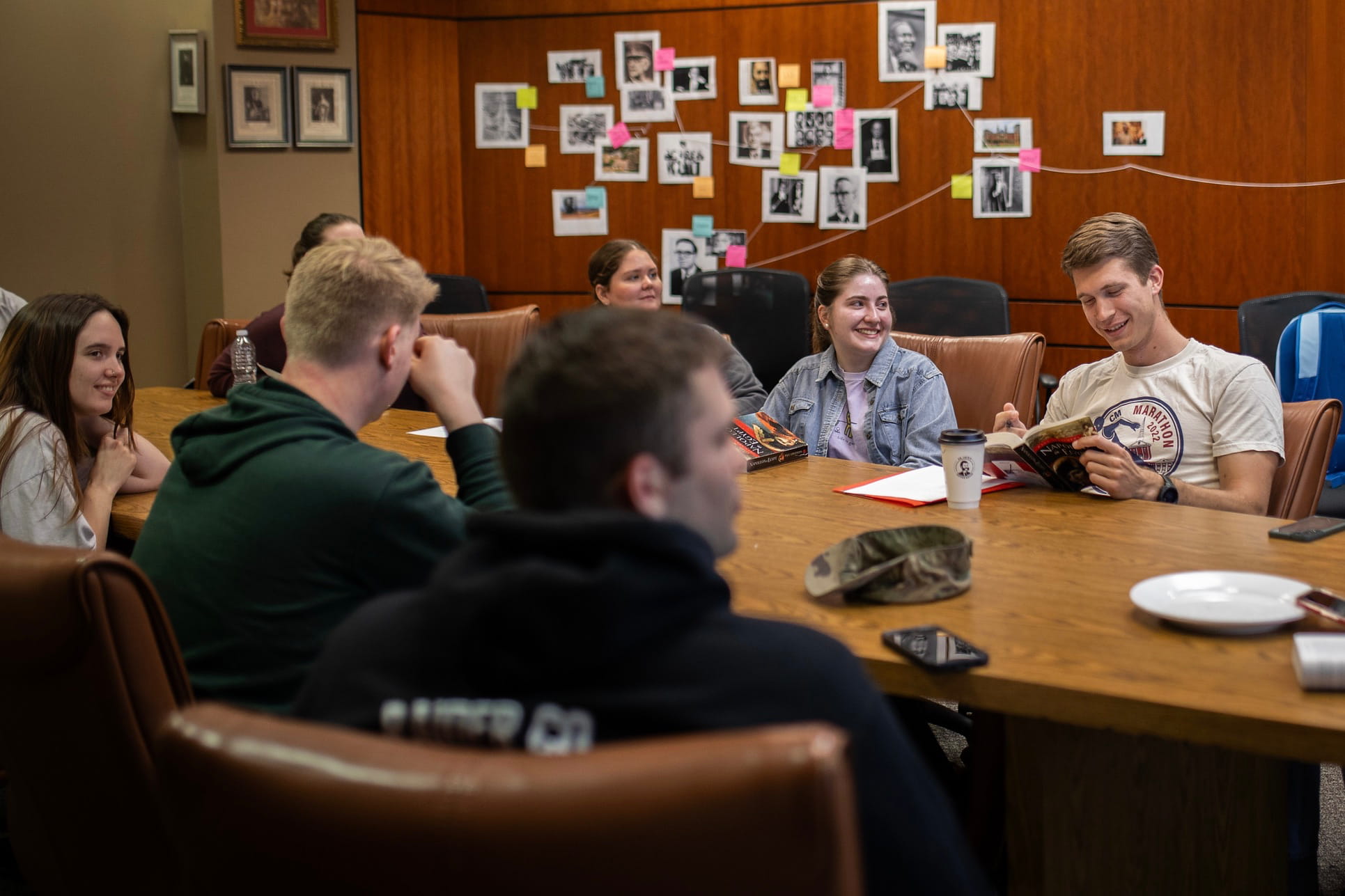Retired U.S. Ambassador David Greenlee presents Birkett Williams Lecture at Ouachita
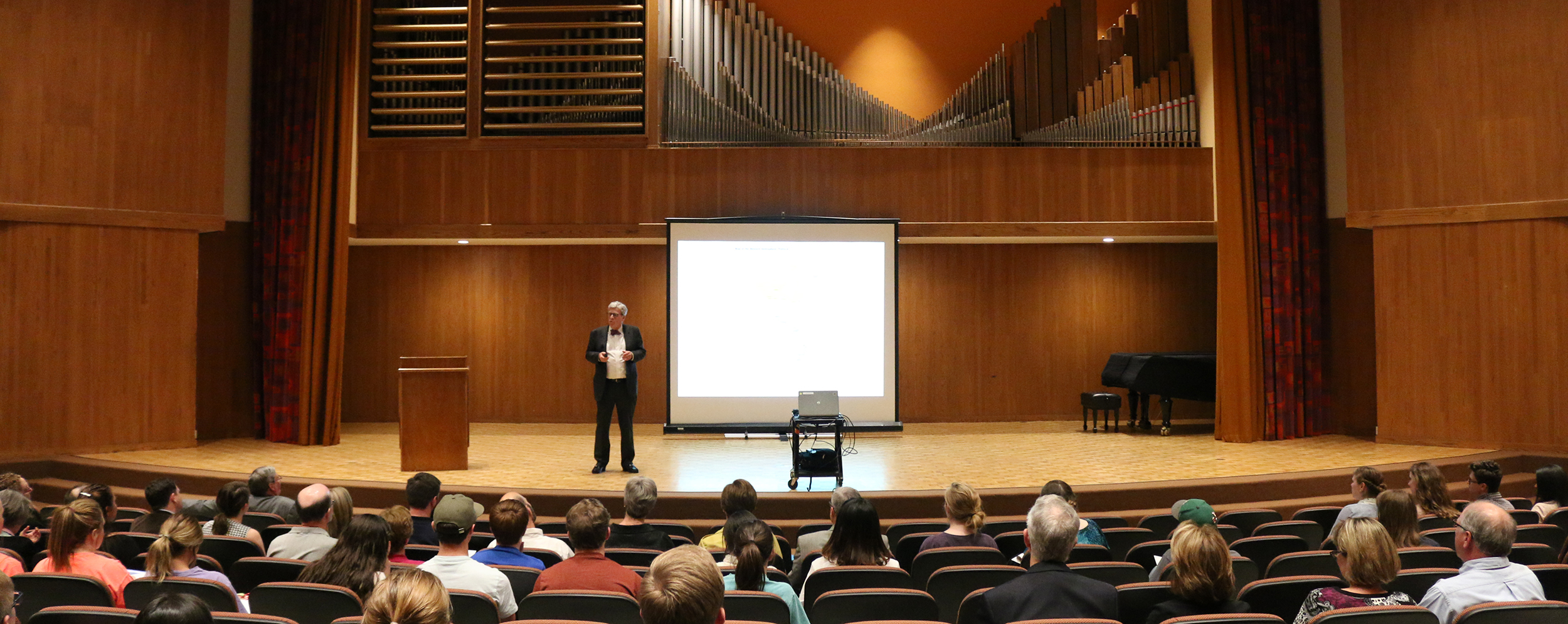 April 18, 2016
- Rachel Gaddis
April 18, 2016
- Rachel Gaddis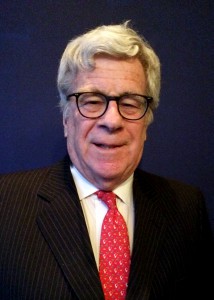 Ouachita Baptist University recently hosted retired U.S. Ambassador David Greenlee
as a Woodrow Wilson Visiting Fellow. During his stay April 4-6 Greenlee led discussions
in both honors and faculty colloquiums, spoke in several classes and presented the
Birkett Williams Lecture.
Ouachita Baptist University recently hosted retired U.S. Ambassador David Greenlee
as a Woodrow Wilson Visiting Fellow. During his stay April 4-6 Greenlee led discussions
in both honors and faculty colloquiums, spoke in several classes and presented the
Birkett Williams Lecture.
The Woodrow Wilson Visiting Fellows, a program which brings prominent and diverse
professionals to college campuses, coordinated Greenlee’s visit. Greenlee served as
U.S. ambassador to Bolivia (2003-06) and Paraguay (2000-03) and spent a total of 32
years in foreign service.
Prior to his role as an ambassador, Greenlee served as U.S. State Department special
coordinator for Haiti (1997-99); U.S. official chair for the Israel-Lebanon Monitoring
Group (1996-97); U.S. political advisor to the Army Chief of Staff (1995-96); U.S.
State Department deputy chief of mission to Spain (1992-95), Chile (1989-92) and Bolivia
(1987-89); and as a Peace Corps volunteer to Bolivia (1965-67). A graduate of Yale
University and the National War College, he also served as a U.S. Army first lieutenant
in Vietnam.
Drawing from his experience, Greenlee shared his perspective on “Policy and Security
Challenges in Latin America: A Broad Look at the Neighborhood” during the Birkett
Williams Lecture on April 5. The lecture series is held each semester and rotates
among Ouachita’s academic schools; the W.H. Sutton School of Social Sciences hosted
this semester’s lecture.
While Greenlee said he realized the United States’ focus is “stuck” on the Middle
East, Eastern Europe and East Asia, he proposed that building relationships with Latin
American countries—in addition to current relationships with Brazil and Mexico—should
be seen as equally important. He noted the region’s issues with corrupt governments,
drug trafficking, gangs and poverty but said that overall, it is a good place to do
business.
“Latin America is a region at peace, and that’s something we should value,” Greenlee
said. “We should cultivate and find ways to strengthen those relationships.”
Greenlee proposed trade agreements with countries such as Chile, Colombia and Peru.
He said the United States should see its commonalities with Latin America—similar
perspectives and cultural views due to common colonial experiences—as an opportunity.
He also discussed how trade deals with these countries would compare with current
partners.
“China is, by some margin, our largest bilateral trading partner,” he said. “But we
do in our two-way trade with Canada and Mexico twice what we do with China and nearly
three times what we do with the European industry. So this is where we do business
and where trade agreements with Chile, Colombia and Peru are important.”
Greenlee also unpacked the most recent hot-topic developments between the United States
and Latin America. In response to President Obama’s visit to Cuba, Greenlee said the
initiative “was absolutely a surprise” and illustrated “the lingering effects of the
Cold War.” He also said the United States’ relationship with Mexico “is of absolute
vital interest.”
“It’s in our interest to see Mexico strengthened, to see Mexican interests thrive,”
he said. “We don’t want people walled out and condemned to increasing poverty by not
having access to our markets. What we want are productive people that we can trade
with.”
Dr. Hal Bass, professor of political science at Ouachita, said the lecture was “a
thorough and thoughtful overview of U.S.-Latin American relations” and “featured both
an extensive and informative historical background and numerous illustrations drawn
from his personal experiences in the diplomatic arena.”
Bass also said Greenlee’s overall visit to Ouachita “enriched our community.” Greenlee
met with honors students and OBU faculty in colloquia where he shared his understandings
of the idealistic and realistic motivations underlying U.S. foreign policies, as well
as the tensions that arise in balancing them. Greenlee also visited with students
in CORE, history, political science and Spanish classes, emphasizing the value of
a liberal arts education to prepare for careers in public service—at home and abroad—and
of study abroad experiences to gain broader exposure and perspectives.
“He provided us with access and expertise that will enhance our ability to prepare
our students for international opportunities that await them,” Bass said.
One such student is Roxanne Easter, a senior history major from Sheridan, Ark., who
said she was encouraged to find that she and Greenlee shared common interests and
college experiences. In the spring of 2014, Easter studied history at Salzburg College
in Salzburg, Austria. She has considered working for the Foreign Service or State
Department.
“He studied abroad in college and wanted to work with different cultures but didn't
know what to do after college, all of which is very similar to me,” Easter said. “He
was able to give me advice and encouragement on how to get started with my international
career as well as the Foreign Service.”
“Attending a small school would normally limit a student's opportunities abroad, but
Ouachita is not that way at all,” she said. “I am always impressed with how broad
Ouachita's connections are, and being involved in the history and political science
departments has brought me more opportunities, like meeting an ambassador, than I
could have ever thought before.”
By Rachel Gaddis
You Also Might Like
Recent
Ouachita reports Spring '26 enrollment, led by 50% increase in graduate students
February 11, 2026